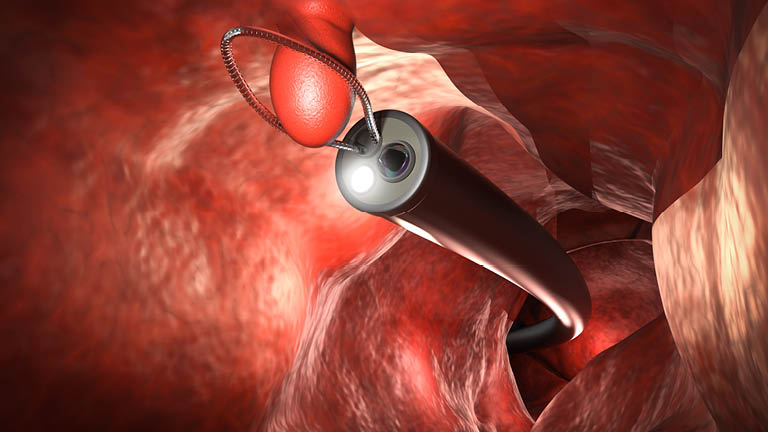Colon Cancer
What Is Polip

Epithelial cells lining the inner surface of the entire digestive system can grow in place and form lumps of different diameters. These structures are generally called "polyps". Although polyps are commonly seen in the large intestine (colon), the diagnosis of polyps in the gallbladder has started to be made more frequently with the development of imaging techniques.
Those Who Have Polypoıd Disease In The Family Should Be Careful!
Familial bowel polyp disease; It is considered as a high risk group such as ulcerative colitis and some congenital syndromes. These people should be followed up by a physician and have colonoscopic controls. Colon cancer is triggered by physical inactivity, obesity, excessive consumption of alcohol, red meat and animal fats. Anyone over the age of 50 should have a colonoscopic control. We should not forget that early diagnosis and correct surgical intervention give patients the opportunity to live longer!..
It Is Possible To Avoid Colon Cancer With Regular Control

Most colon cancers initially develop from a benign small piece of tissue called a polyp. Some of these benign polyps turn into colon cancer over time. Polyps are small lesions that usually do not cause a complaint. For this reason, regular checks are of great importance in preventing colon cancer. Let's not forget that the most common cancers that metastasize to the liver originate from the colon!
Early Diagnosis And Correct Surgıcal Intervention Is Important In The Treatment Of Colon Cancer!
Early diagnosis is of great importance for the success of colon cancer treatment. First of all, factors such as investigating and determining the causes of the disease, especially polyps, family history and genetics should be taken into account. The treatment of colon cancer is surgery. The part with tumor is removed by surgical methods and intestinal continuity is restored. Surgery to be applied in colorectal cancers; It is planned depending on the size, location, stage of the mass and the general health status of the patient. Sometimes, patients may need to receive chemotherapy and radiotherapy before surgery. Chemotherapy may be needed after the surgery, depending on the presence of tumor in the lymph nodes and the stage of the disease. With all these approaches, the spread and recurrence of the tumor is minimized.
Attention To Weight Loss And Anemia!

It is very important for the person to follow the signals in his / her body for the early diagnosis of colon cancers. Rectal bleeding is the most common symptom of colon cancer. If the cancer is close to the anus, the bleeding may be obvious, while colon cancers arising from the beginning part close to the small intestine usually cause occult bleeding from the anus. The main findings are as follows:
- Weight loss
- Anemia
- Abdominal pain
- Pale color
- Bloating
- Change in defecation habits
Colorectal Cancer Can Metastasis To Liver
The primary treatment method in colorectal cancer is surgery. The need for chemotherapy and radiotherapy before and after surgery is determined with a multidisciplinary approach according to the location, size and pathology result of the cancer
In surgical treatment, it is aimed to completely remove the lymph nodes, which have the potential to spread the cancer. Open surgical methods, laparoscopic (closed method surgery) and robotic surgical treatment methods can be applied in these cancers. It should not be forgotten that approximately 50% of these patients may develop liver metastasis at some time in their lives. For this reason, it is very important for patients to have their
